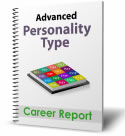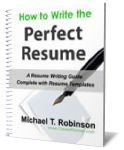"Microbiologist"
Job Description - Part 3 - Skills Required
Part 1
Duties / Tasks
Part 2
Activities
Part 3
Skills
Part 4
Abilities
Part 5
Knowledge
Skills Needed for: "Microbiologist"
1) Science -- Using scientific rules and methods to solve problems.
2) Reading Comprehension -- Understanding written sentences and paragraphs in work related documents.
3) Instructing -- Teaching others how to do something.
4) Active Listening -- Giving full attention to what other people are saying, taking time to understand the points being made, asking questions as appropriate, and not interrupting at inappropriate times.
5) Critical Thinking -- Using logic and reasoning to identify the strengths and weaknesses of alternative solutions, conclusions or approaches to problems.
6) Active Learning -- Understanding the implications of new information for both current and future problem-solving and decision-making.
7) Writing -- Communicating effectively in writing as appropriate for the needs of the audience.
8) Time Management -- Managing one's own time and the time of others.
9) Troubleshooting -- Determining causes of operating errors and deciding what to do about it.
| Thanks for visiting CareerPlanner.com | ||

|
1) Use Career Testing to find the perfect career 2) Is your resume getting you enough interviews? |
 |

|
Thanks for visiting CareerPlanner.com 1) Use Career Testing to find the perfect career 2) Is your resume getting you enough interviews? |
 |
10) Complex Problem Solving -- Identifying complex problems and reviewing related information to develop and evaluate options and implement solutions.
11) Equipment Maintenance -- Performing routine maintenance on equipment and determining when and what kind of maintenance is needed.
Is being a "Microbiologist" your very best career choice?
Our Career Interest Test will show you which careers match your interests.
Our Free Personality Test will show you which careers match your personality and why.
12) Mathematics -- Using mathematics to solve problems.
13) Monitoring -- Monitoring/Assessing performance of yourself, other individuals, or organizations to make improvements or take corrective action.
14) Judgment and Decision Making -- Considering the relative costs and benefits of potential actions to choose the most appropriate one.
15) Coordination -- Adjusting actions in relation to others' actions.
16) Equipment Selection -- Determining the kind of tools and equipment needed to do a job.
17) Operation Monitoring -- Watching gauges, dials, or other indicators to make sure a machine is working properly.
18) Operations Analysis -- Analyzing needs and product requirements to create a design.
19) Speaking -- Talking to others to convey information effectively.
20) Quality Control Analysis -- Conducting tests and inspections of products, services, or processes to evaluate quality or performance.
21) Learning Strategies -- Selecting and using training/instructional methods and procedures appropriate for the situation when learning or teaching new things.
22) Operation and Control -- Controlling operations of equipment or systems.
23) Technology Design -- Generating or adapting equipment and technology to serve user needs.
24) Service Orientation -- Actively looking for ways to help people.
25) Social Perceptiveness -- Being aware of others' reactions and understanding why they react as they do.
26) Installation -- Installing equipment, machines, wiring, or programs to meet specifications.
27) Negotiation -- Bringing others together and trying to reconcile differences.
28) Repairing -- Repairing machines or systems using the needed tools.
29) Management of Personnel Resources -- Motivating, developing, and directing people as they work, identifying the best people for the job.
30) Persuasion -- Persuading others to change their minds or behavior.
Job Description for "Microbiologist" continued here...
Part 1
Duties / Tasks
Part 2
Activities
Part 3
Skills
Part 4
Abilities
Part 5
Knowledge
"Microbiologist" Holland / RIASEC Career Code: I-R-C SOC: 19-1022.00
Click here for "Microbiologist" Jobs
See the Future Outlook and Educational Requirements for "Microbiologist"
Our Most Popular Products





